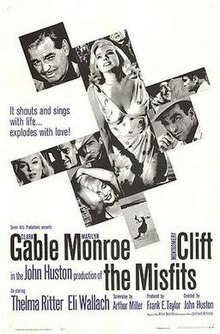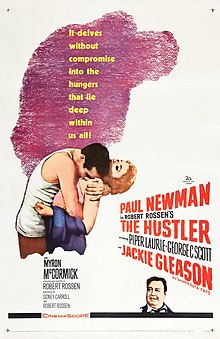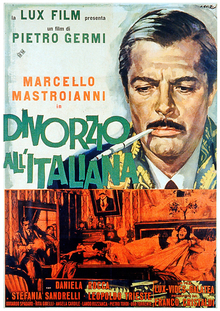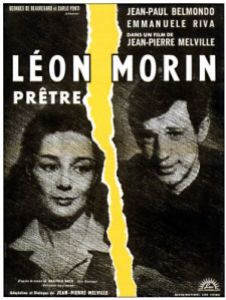In 1961,
The United States severed diplomatic relations with Cuba;
John F Kennedy became the 35th President of the United States of America;
Barbie’s boyfriend, Ken, debuted;
Adolf Eichmann’s trial took place in Jerusalem;
Sierra Leone, South Africa, and Kuwait declared independence from the UK;
Alan Shephard became the first American in space;
Newton Minnow famously declared commercial television was a “vast wasteland.”;
Construction began on the Berlin Wall;
Roger Maris hit sixty-one homeruns, breaking Babe Ruth’s single season record;
The first American helicopter arrived in Vietnam;
Gabrielle Carteris, Todd Haynes, Calvin Smith, Al Jean, Evan Handler, Julia Louis-Dreyfus, Wayne Gretzky, Henry Rollins, Davey Allison, James Worthy, Steven Weber, Mike Leach, Rick Steiner, Todd McFarlane, Sam Bowie, Amy Sedaris, Christopher Meloni, Eddie Murphy, Vincent Gallo, Robert Carlyle, Jane Leeves, Don Mattingly, George Lopez, Isaiah Thomas, Mike Dunleavy, George Clooney, Bill de Blasio, Janet McTeer, Dennis Rodman, Tim Roth, Enya, Peri Gilpin, Melissa Etheridge, Lea Thompson, Mary Kay Bergman, Michael J. Fox, Aaron Sorkin, Boy George, Andres Galarraga, Iain Glen, Ricky Gervais, Greg Lemond, Diana Spencer, Carl Lewis, Toby Keith, Jackie Early Haley, Forest Whitaker, Elizabeth McGovern, Campbell Scot, Lisa Lampanelli, Woody Harrelson, David Heyman, Ed Orgeron, Laurence Fishburne, Barack Obama, Maggie Wheeler, The Edge, Alexandre Desplat, Jared Harris, Billy Ray Cyrus, Tom Ford, Jennifer Coolidge, Bam Bam Bigelow, Virginia Madsen, Dave Mustaine, James Gandolfini, Bonnie Hunt, Chi McBride, Heather Locklear, Eric Stoltz, Jodi Benson, Doc Rivers, Dylan McDermott, Randy Jackson, Peter Jackson, k.d. lang, Ralph Macchio, Jeff Probst, Nadia Comăneci, D.B. Sweeney, Steven Moffat, Meg Ryan, Mariel Hemingway, Alfonso Cuarón, Tom Sizemore, Frank Reich, Alan Davies, Ann Coulter, Shane Black, Reggie White, Ghislaine Maxwell and Sean Hannity were born;
While Erwin Schrödinger, Dashiell Hammett, Barry Fitzgerald, Patrice Lumumba, Anna May Wong, Roy Del Ruth, Gary Cooper, Carl Jung, Ernest Hemingway, Ty Cobb, Charles Coburn, Dag Hammarskjöld, Jimi Hendrix, Marion Davies, Chico Marx, James Thurber, and Edith Wilson died.
The following is a list of my ten favorite films released in 1961:

10) The Misfits
Recent divorcee Roslyn Tabor (Marilyn Monroe) meets aging cowboy Gay Langland (Clark Gable) and his friend Guido (Eli Wallach). Motivated as much by loneliness as genuine affection for one another, Gay and Roslyn embark on a tempestuous love affair. The more age appropriate Guido makes an unsuccessful play for Rosyln’s attention, but is rebuffed. Joining with another of Gay’s friends, down on his luck rodeo driver Perce Howard (Montgomery Clift), the newly formed quartet try to make a life together rounding up wild mustangs.
Written by Monroe’s then husband, Arthur Miller, directed by John Huston, and featuring a late career turn by Thelma Ritter as Roslyn’s landlady, this movie is bursting with talent.
Monroe grew up idolizing Gable (which makes their pairing despite a quarter century age gap more disturbing). Gable was one of the chief faces of Hollywood’s glorious heyday in the thirties and forties. Monroe and Clift represented the direction it would head in the next generation.
The film foreshadows the recent efforts of Hollywood to peel back the shiny varnish and unromanticize the West. The story of the west is now frequently cast as the struggle of moving into the future, pitting those who fight against the inevitable tide of history versus those who push it along.
It’s easy to see the lead characters as reflective of the personal turmoil of the actors. Gable died shortly after filming completed, Monroe less than a year after it premiered, and Clift within five years. None saw sixty; Gable was the only one to see fifty.
Monroe’s performance drips with the desperation we now know to be hiding behind the veil of the alluring bombshell. Clift pulls the elder Gable towards the more realistic performances his generation (Dean and Brando) personified, and he proved up to the challenge, letting the bravura machismo of his constructed persona fall to give us a glimpse of his vulnerability. It’s haunting, especially considering he was in his final days. It makes you realize how lovely an elder Gable could have been. You could easily have seen him in roles like Harry and Tonto or in Atlantic City.
9) Munro
As American film studios moved away from theatrically released animated shorts, Gene Deitch was approached by a producer with an offer to direct this Jules Feiffer penned cartoon, if he based his production out of Prague, beginning a lifelong association with the Czech capital.
In this biting short, four year old Munro is accidentally drafted into the army, exposing the hypocrisy and absurdity of military life.
A brilliant expose of groupthink, it still rings true sixty years later.

8) La Notte
Celebrated author Giovanni (Marcello Mastroianni) and his wife Lidia (Jeanne Moreau) live an outwardly idyllic existence, but, after visiting a dying friend, the inner turmoil of their meaningless lives bubbles to the surface.
Seeking a respite from his pain in sex, Giovanni is thwarted by external forces in his first attempt then rejected in his second by the daughter of a wealthy friend (Monica Vitti).
Lidia is wooed at a party, but she rejects her suitor, not out of loyalty to her husband, but because she realizes it will provide fleeting happiness.
In the end, the erstwhile couple is reunited. Giovanni assures his wife he still loves her, but when she reads him an old love letter he wrote her years ago, he doesn’t recognize it.
Director Michelangelo Antonioni was one of principle architects of cinema’s response to the cultural malaise of the post war years as the greatest generation who fought the good fight were left to wonder what they had fought for.
Antonioni makes clear his position on the empty promises of capitalism, positing the unquenching desire for more destroys the soul.
Mastroianni’s ability to embody the existential angst of the everyman is unparalleled. I can hardly think of a film where he wasn’t at battle with himself, struggling to find his place in the world around him, unsure of anything, but possessing an unmistakable swagger nonetheless. His onscreen confidence is always a front to obscure crippling anxiety and listlessness.
For a brief period in the 1960s, Jeanne Moreau was the epitome of arthouse sensibility: alluring and damaged.
Monica Vitti was electric as Valentina, the predictable object of Giovanni’s infatuation. Insecure men frequently turn to young women to fill emotional voids as the hourglass runs in a desperate attempt to hold off the inevitable reckoning. Antonioni brilliantly positions Valentina as the sensible one who instinctively knows what Giovanni is looking for, and articulates it better than either of the two central characters can.

7) The Hustler
Hustler Fast Eddie Felson (Paul Newman) travels around the country hoping to challenge and defeat legendary pool shark Minnesota Fats (Jackie Gleason).
In their first meeting, Eddie is way up, but insists on beating Fats into submission and loses everything.
After the humiliating loss, Eddie is mentored by a professional gambler of questionable character, Bert (George C. Scott) while a young alcoholic, Sarah Packard (Piper Laurie) tries to get Eddie to see value in his life outside his accomplishments.
Eddie gets a rematch with Fats and beats him roundly, but in the process discovers who Bert really is and loses Sarah forever.
Paul Newman is perfectly cast. His charm and dashing good lucks made him a perfect confidence man. Jackie Gleason proved he was more than the bombastic star of The Honeymooners. George C. Scott was deliciously evil, embodying the tough love mentality of countless coaches and mentors.
My dad was fourteen when this movie premiered and I’m convinced we had a pool table because of his affinity for the films of Newman and McQueen.
Walter Tevis’s output was not prodigious, but it has been frequently mined by Hollywood. In addition to the novel which inspired this film, he wrote a sequel The Color of Money (later adapted into a film by Martin Scorsese which would finally win Paul Newman his elusive Oscar), The Man Who Fell to Earth, and The Queen’s Gambit.
This is a fine exploration of how our obsession with winning excuses, obscures, and obfuscates despicable behavior. While we’re busy destroying the sexual binary, we perpetuate a much more dangerous one: dividing everyone into winners and losers.

Bored with his wife, Rosalia, Fernando (Marcello Mastroianni) lusts after his much younger cousin, Angela. Divorce is unheard of in Italy, so he tries to set his wife up in an affair, hoping to catch her in the act of adultery and murder her.
It’s a darkly comic film about the unspoken, unpleasant underside of marriage, about a wandering eye and the struggles to keep a marriage fresh and exciting.
Mastroianni is brilliant and I love the meta joke using La Dolce Viti (another Mastroianni film) as a plot point.
The movie ends with a bitterly funny segment: Fernando has killed his wife, and served some time in prison, but is now with Angela, who we learn is involved in a clandestine affair of her own.
It’s a dim view of marriage and love, but it’s honest and funny.

5) Fanny
Fanny (Leslie Caron) is in love with Maurius, but after consummating their relationship, he leaves for adventures at sea. When Fanny discovers her encounter with Maurius left her pregnant, she marries the elderly, wealthy Panisse (Maurice Chevalier); he knows the child is not his, but agrees to raise Caesar as his own.
I love Chevalier; his real life friendship with Charles Boyer and their joy at working together is palpable.
It’s a complicated melodrama with dizzying twists and turns.
Caron is electric, and despite being an American production by an American director (Joshua Logan), this movie and the lush scenery are what I imagine France to be like.

4) The Mark
Jim Fuller (Stuart Whitman) is released from prison after serving time for attempted child molestation. He gets a job and begins making a life for himself, but when a child is abducted and police finger him as a suspect, this fresh start is turned upside down.
I found this movie difficult, but rewarding. Are their irredeemable acts? Are you forever defined by your worst action? Is it possible to pay for your crime and move on? Are some crimes, some sins unforgivable?
A communist rabble-rouser (Emmanuelle Riva) goes to confession to pick a fight with a priest (Jean-Paul Belmondo); they develop a friendship and meet regularly to discuss issues of faith.
Like the philosophical movies of Carl Th. Dreyer or Louis Malle’s My Dinner with Andre (1981), this film by Jean-Pierre Melville is basically a two-hour discussion of the nature of God and faith.
I really liked it, but I love philosophical movies which prod self-discovery.

With this film, Bergman began his most important work: exploring questions of faith and God in a post WWII, post nuclear age.
David is a manipulative novelist who plumbs his children’s pain for material. His daughter Karinn is treated for schizophrenia and believes she may have heard God speaking to her. His son Minus is insecure and sexually frustrated.
In this harrowing tale of mental illness, Bergman suggests faith itself can be described as a form of mental illness.
It’s a lot more complex and nuanced than that of course, but this is the heart of why I love Bergman: he asks tough questions and never forces a predetermined answer.
Inspired by the Judges’ Trial, this movie explores the culpability of every day German citizens in Nazi atrocities. Were the judges who carried out sentences according to Nazi law wrong to do so?
Chief Judge Dan Haywood (Spencer Tracy) is committed to a fair trial, despite pressure by the US government to go easy on the Germans so they would support US policies in the Cold War.
World-renowned jurist Dr. Ernst Janning (Burt Lancaster) is the primary defendant in this particular tribunal. Lancaster shrewdly plays him as a victim, and manages to make a man who carried out Nazi orders sympathetic.
Frau Bertolt (Marlene Dietrich), a widow of a German general executed by the Allies, provides a context for understanding how Germans allowed the Nazis such power.
Irene Hoffman (Judy Garland) is a reluctant witness torn between loyalty to her native country, a sense of what is right, and fear of retaliation for her testimony. Garland is excellent and proves she was more than a powerful voice.
Rudolph Peterson (Montgomery Clift) was forcibly sterilized by the Nazis. Clift’s life was cut short, but he, alongside Marlon Brando and James Dean popularized the naturalistic approach to acting still en vogue today.
The highlight of the film is Maximilian Schell as German defense attorney Hans Rolfe. His impassioned and logical pleas justifying leniency for the German judges, paint a picture of a helpless situation: the Germans were downtrodden after WWI, eugenics were widely practiced, other countries had given legitimacy to the Nazis. Schell was rewarded with an Oscar for his astounding performance which makes us momentarily believe Nazi collaborators were innocent victims.
The cast also includes a pre-Star Trek William Shatner and Werner Klemperer, who would achieve greater fame playing a decidedly different type of Nazi.
The movie boldly uses actual footage from the Russian liberation of concentration camps.
When you realize those are the remains of actual victims of Nazi atrocities, it makes every other Holocaust film seem trite.
After posing legitimate questions about the responsibility of Germans for the actions of their government, the film ends with a powerful reminder of the duty each of us has to ensure justice is carried out. Janning claims he never intended innocents to be slaughtered he shouldn’t be held accountable, Haywood retorts, “Herr Janning, it came to that the first time you sentenced a man to death you knew to be innocent.” Failure to do what you know to be right is a tacit endorsement of what you know to be wrong.

